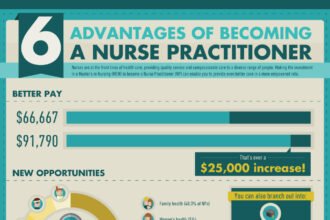

Based on the results of countless studies – such as a 2011 Synovate study in which 52 percent of women admitted lying to their healthcare providers – and the experience of thousands of physicians, the fact patients lie should come as no surprise to any medical provider. These lies could vary from stretching the truth about how often they’re exercising, to how many alcoholic drinks they ingest per day, to whether or not they’re following dosing instructions on a prescription. Patients can lie about anything, and for seemingly any reason. This creates many challenges for medical providers, but it becomes an even bigger issue as the United States moves from a fee-for-service payment model to one that compensates physicians based on treatment outcomes.
Consider this scenario: a male patient presents with fatigue, jaundice, and bruises easily. When asked how many drinks per day he has, the patient tells his primary care physician he has “maybe one or two a day.” Of course, the physician is unlikely to rule out cirrhosis based solely on patient-provided information, but assume for a moment that he or she did. Perhaps the patient interpreted his bruising as upper abdominal pain and that led the physician to determine the patient was dealing with a case of gallstones. The primary care physician refers the patient to a hepatologist, who then determines that the patient actually has cirrhosis, not gallstones.
Would the referring physician be compensated at a lesser rate by the patient’s insurance because he or she missed the diagnosis? What if the patient decided they would prefer to “tough out” the gallstones, skipped the referral appointment, and died of acute liver failure a short while later? Perhaps this isn’t the best example, but the principle holds true regardless. Trusting physicians could see reimbursement rates fall if that trust negatively impacts their ability to accurately diagnose and treat patients.
Enter ‘Big Data.’ Carolinas HealthCare System, which operates the largest group of medical clinics in North and South Carolina, has partnered with an unnamed data provider to access consumer transaction data from two million people. This transaction data comes from public records, loyalty programs, and credit card purchases. This data is already being leveraged by marketers to influence purchase decisions. A pattern of beer buying could allow a marketer to make suggestions on new beers to try, or develop a marketing plan around a poor-performing products. A physician could use the same data to determine that our earlier cirrhosis patient was lying, or that a cardiac patient hasn’t filled his statin prescription in two months. Instead of using transaction data to influence more bad decisions through targeted marketing, a physician could encourage his or her patients to make better decisions.
Of course, this raises a host of ethical questions. In the brave new, HIPAA world, does transaction data become healthcare information once it’s accessed by a physician? Who even owns this data? Should the “unnamed data provider” be allowed to sell this information in the first place, or should the people who create this data – the consumer – be the arbiters of who can access it and for what purposes? What limits are set to protect the consumer? Could an insurance company access this data to better determine the coverage risk of individuals? Many questions are raised by this practice, but there are few satisfactory answers. The 2003 Fair and Accurate Credit Transactions (FACT) Act was supposed to restrict the sharing of transaction data. Banks are now supposed to allow customers to “opt-out” of this sharing, but the process involved in “opting-out” is rarely quick or easy.
Many will argue that the ends justify the means; turning physicians into Big Brother will encourage better lifestyle choices, improve healthcare outcomes, and reduce the percentage of GDP spent on preventable medical conditions. No one will argue that this data isn’t valuable. Being able to link patients with their purchase decisions and therefore, their lifestyle choices, will be a boon for nearly any medical study. Imagine being able to discern a pattern in several persons’ eating, drinking, and travel habits that reveals an increased cancer risk. Of course, for a medical study to collect the amount and types of data necessary to make these conclusions, participants would have to sign some form of agreement allowing the data to be collected and used. While most credit cardholder agreements include a statement such as, “you authorize us to collect information about you in order to conduct our business…you authorize us to share such information about you or your account with our affiliates and others”, I doubt anyone with a credit card foresaw his or her transaction data being made available to a physician or insurance company.
Ultimately, it all comes back to patient care. If we as a society are truly concerned with improving medical outcomes, then aggregating transaction data to discern patterns of behavior and predict health or sickness is a movement we all can get behind. As an abstract concept, it makes perfect sense; it becomes more difficult in practice, when it’s YOUR transaction history that’s called into question by your doctor. Still, as more and more data analytics companies move into healthcare data warehousing and analysis, the amount and types of data collected will only continue to grow.







